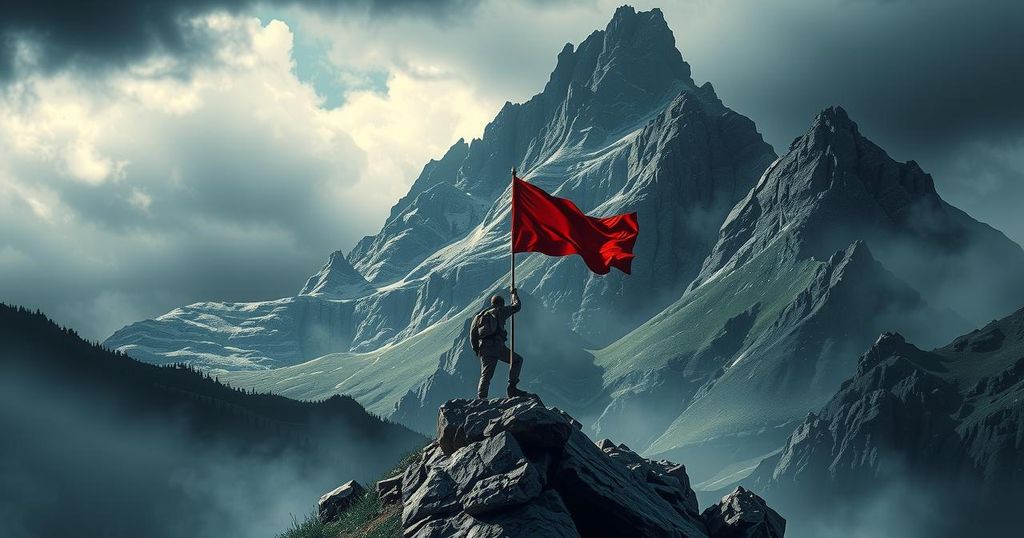President Felix Tshisekedi has returned from Davos to address the escalating conflict in the Democratic Republic of Congo. The M23 rebels have captured significant territories, displacing over 400,000 people since January. The potential capture of Goma poses a critical threat, while the UN warns of a risk of broader regional conflict.
President Felix Tshisekedi of the Democratic Republic of Congo has abruptly concluded his attendance at the World Economic Forum in Davos to address the escalating conflict in his country. Fighting has significantly intensified in eastern DR Congo since the year began, with M23 rebels, reportedly supported by Rwanda, capturing more territory than ever before. According to United Nations reports, over 400,000 individuals have been displaced since January due to the advancing insurgents aiming for the provincial capital of Goma.
The M23 has seized control of key towns, including Masisi and Minova in North Kivu, raising alarms over the potential fall of Goma, a city with over a million residents located near the Rwandan border. The rebels had previously taken Goma during a rebellion in 2012 but retreated after a peace agreement was established. Recent reports confirm that Sake, a town just 20 kilometers from Goma, has also been captured by the M23, although the Congolese military claims to have repelled this attack.
As the conflict escalates, residents in Sake and surrounding areas, already burdened by displacement, are fleeing in desperation, often carrying basic necessities on their backs or crowding into small boats for safety. Since 2021, the M23 has secured vast territories within the mineral-rich eastern regions of DR Congo, leading to significant humanitarian crises, with countless civilians displaced. Tensions escalated in October, culminating in heavy fighting by year’s end, prompting urgent government responses.
The UN and the Congolese government accuse Rwanda of supporting the M23, a claim that remains undenied by Rwandan authorities. On Friday, UN Secretary-General Antonio Guterres cautioned that the conflict risks spilling over into a larger regional war. He emphasized the need for all parties to respect DR Congo’s sovereignty and to cease any support for armed factions, reiterating the urgent need for peace and stability in the region.
The ongoing conflict in the Democratic Republic of Congo, particularly in the eastern region, has a complex history rooted in political instability and armed insurrections. The M23, a rebel group formed in 2012, has consistently sought control over regions rich in minerals, compounding the humanitarian crises in the area. External influences, notably from Rwanda, have exacerbated the conflict, prompting international concern about regional security and stability. Displacement of civilians and areas under siege marks the severe impact of this ongoing struggle, necessitating urgent international attention and intervention.
In conclusion, the intensifying conflict in the Democratic Republic of Congo, driven by the M23 insurgents and leading to large-scale displacements, has prompted urgent actions from President Tshisekedi and international stakeholders. The capture of key territories has raised alarms over the potential fall of Goma, while the UN calls for immediate action to avert further escalation. The situation demands concerted efforts to ensure peace and uphold the sovereignty of the DR Congo amidst ongoing regional tensions.
Original Source: www.bbc.co.uk






